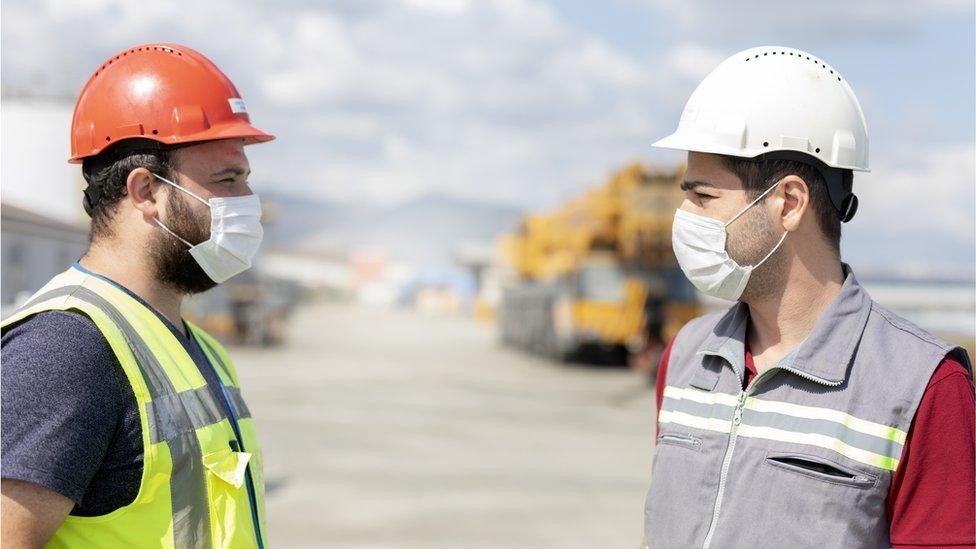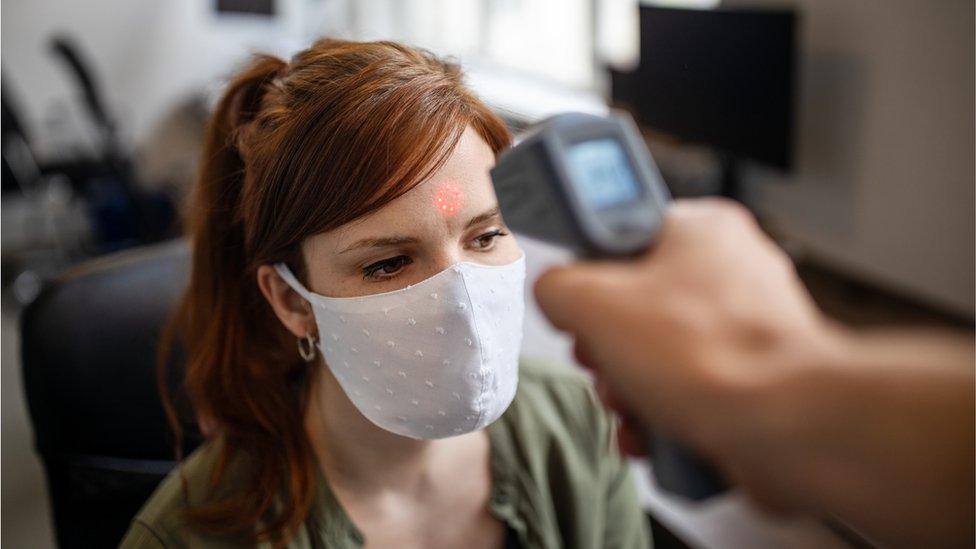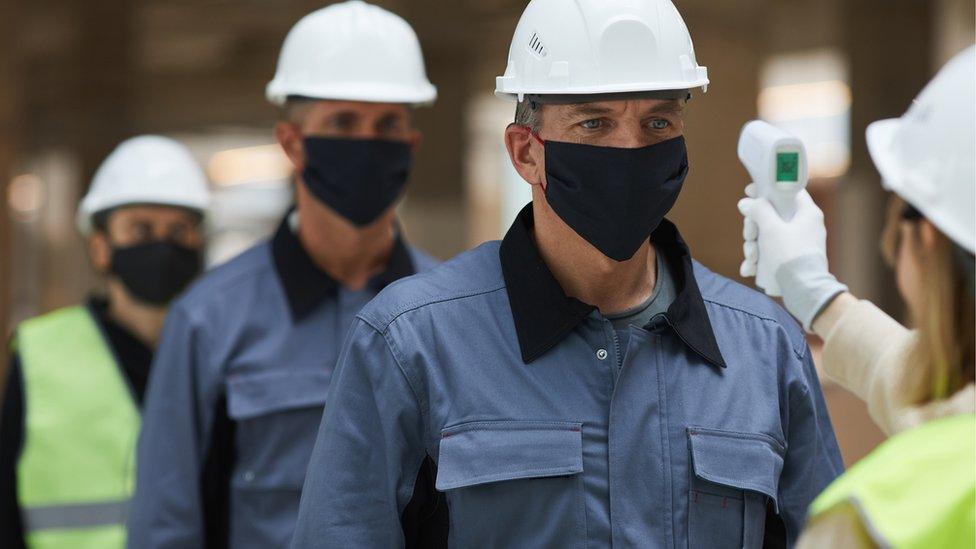Body defends action on Covid workplace safety complaints
- Published

The boss of the body in charge of monitoring and enforcing workplace safety has defended its response to Covid workplace complaints.
The Health and Safety Executive (HSE) has received 134,000 complaints since the crisis started, but issued only 192 enforcement notices.
"We aren't naïve, we fully understand some employers are not trying to do the right thing," its boss told the BBC.
Concerns have been raised about bosses who are failing to protect workers.
In the year before the pandemic struck, the HSE issued 7,000 notices in response to more than 32,000 complaints.
HSE chief executive Sarah Albon said many firms had acted when warned, meaning further action was unnecessary.
"It's really about employers' willingness to work with us co-operatively to put things right before it gets to the point of formal notices," she told Radio 4's Today programme.
Formal notices from the HSE can mean that bosses have to improve conditions to bring them up to health and safety standards, or that they have to stop work immediately.
Lesser measures that inspectors can take include issuing advice or a caution.
Ms Albon pointed out that the HSE had also carried out more than 32,000 site visits since the start of the pandemic.
Under current lockdown rules, people who can work from home effectively should do so, including in areas such as healthcare.
Staff should only travel to their workplace if they cannot do their job remotely, while bosses should have a range of measures in place to stop the spread of the virus.
"The vast majority of employers have been doing the right thing and have been trying to do the right thing," Ms Albon said, although she admitted the organisation had seen a "significant increase" in the number of complaints.

'It's impossible to socially distance'

Jane works as an administrator for a private healthcare firm in Oxfordshire, a job that she is expected to do from the office, even in lockdown.
However, since she caught Covid-19 at work before Christmas, she has chosen to work from home because she feels safer - something that is causing problems with her boss.
"The office is so small and it is impossible to socially distance," she tells the BBC.
"My boss also didn't follow guidelines when I got ill and no one was told to isolate. It was so irresponsible."
Jane argues that her job, which is computer and phone-based, can be done easily from home. She feels that she is only following government guidelines.
However, she says her boss wants her to come back in and she cannot hold out much longer: "I have a mortgage to pay, I can't risk losing my home."

The HSE has also introduced telephone spot-checks in response to the coronavirus crisis, its chief executive said on Friday.
"We're trying to work with business wherever, to make them make changes immediately in order to keep the workplace safe."
The Trade Unions Congress recently called for an increase in resources for the organisation "to stop rogue employers getting away with putting staff at risk. Every employer needs to know an inspection could happen any time".
TUC general secretary Frances O'Grady said: "If the government is upping enforcement, ministers should start with employers who break Covid safety rules."
The government should also make it clear that everyone who can work from home should do so, Ms O'Grady said last Sunday.

What are the rules on going to work?
Under current lockdown restrictions, people across the UK who can work effectively from home should do so. They should only travel to their workplace if they cannot do their job remotely.
This includes, external healthcare professionals, teachers, childcare providers, transport workers, people who work in construction or manufacturing, funeral directors and essential retail workers.
For workplaces that remain open in England, employers must "carry out an appropriate Covid-19 risk assessment" to develop a "specific" strategy to stop the virus's spread.
In England, guidelines set out strict measures, external which employers must follow, such as minimising the number of unnecessary visits to the office, cleaning workspaces frequently and ensuring that staff observe 2m (6ft) social distancing wherever possible.
There is similar guidance for employers across a range of sectors in Scotland, external, Wales, external and Northern Ireland, external.

- Published19 January 2021

- Published17 January 2021

- Published31 January 2022
